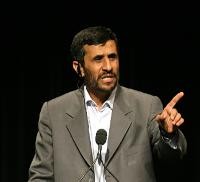The international spotlight might be focused on the Obama administration's efforts to change the tone of its dealings with Iran. But while global attention concentrates on the new U.S. approach, Iran's regional relations with countries in the Middle East and beyond are undergoing a dramatic transformation, with repercussions that reach across the globe. A growing number of Arab countries have engaged in open diplomatic confrontation with Tehran. To compensate for the loss of friends in its own neighborhood, Iran has increasingly forged ties with leftist governments in Latin America, using its growing presence there to find novel ways to help its allied militias closer to home. On Tuesday, prosecutors in the Netherlands announced the arrest of 17 members of a drug trafficking gang on the Dutch Caribbean island of Curacao. According to officials, the gang had smuggled roughly a ton of cocaine to Europe each year, using the proceeds to buy weapons in Latin America to ship to Hezbollah, the Iran-affiliated Lebanon-based group. The news did not come as much of a surprise to the U.S. military. Just last month, the head of the U.S.military's Southern Command discussed Iran's increasing activities in Latin America and the Caribbean in order to help Hezbollah. The Shiite militant group is part of Lebanon's power-sharing government, despite being labeled a terrorist organization by, among others, the U.S., Canada, and the Netherlands.
World Citizen: Iran Looks to Latin America

